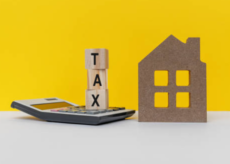Black Friday & Cyber Monday: Why Do We Buy More on Sale?

Buy at a half price and get third product for free… Offers and discounts are an attraction for shoppers across the world. Although offers may seem like perfect occasions to purchase products and services, we should know how to take advantage of them without jeopardizing the financial health.
Black Friday was born in the United States in the 1960s as an initiative for retailers of the time to increase their sales by offering discounts the day after the traditional Thanksgiving holiday. It is celebrated in the United States on the fourth Thursday of November. The success of the sales day was such that it began to spread around the world until it became a date on which many consumers would shop. Every year, people turn more and more to the Internet to make purchases during these times of sales, discounts and promotions.
In this sense, behavioral economics gives us some keys to understand how cognitive biases cause our brain to rely on emotions and perceptions at the time of purchase, leaving aside rational criteria. The most frequent are usually:
Fear of missing the opportunity: Although it is increasingly common for “Black Friday” to extend over several days, especially in online stores, the fact that promotions are only available for a limited period can generate a sense of loss if they are not taken advantage of. This encourages impulse purchases that in other circumstances – without the pressure of time – would not be carried out.
Social pressure: The temptation to purchase on Black Friday increases simply because the people around us do so as well. This behavior is called the creep effect and explains how the way we act or decide is unconsciously influenced by others.
Preference for the now: This tendency is known as the “present bias” and serves to understand why it is easier to spend money during “Black Friday”, buying discounted items than to think about saving for the future or to reach a financial goal.
Expectation for price: Discounts are the main attraction of Black Friday. We get carried away more by the temptation of the offer than by the real utility or need for the product. That is to say, we buy because we don’t want to miss the opportunity and that’s why it’s not surprising that we have unused products in stock that we buy only because of the discount.
Should we buy on Black Friday?
Technology, fashion and entertainment items are usually the most demanded products during “Black Friday”. This reflects that there is a tendency towards impulse purchases and related to emotional reasons (cognitive biases) before acquiring basic necessities (food, cleaning products, hygiene…).
To try to control the influence of cognitive biases in our purchasing decisions during commercial initiatives such as Black Friday, we can put into practice simple tricks such as creating a list of items really required. This will stop you from getting carried away by the number of offers on products that you’d not planned and keeping control of spending. In addition, having this information of the items previously we can compare the real price and the discounted price in different websites or physical stores.
To avoid unnecessary purchases, it is also highly advisable to ask ourselves before buying if we would buy that product or service at another time without discount or if we are going to use it enough. This type of reflection will help us to differentiate, for example, between saving 40% on a useful item or spending extra money on something that is not necessary.
Author Bio:
I am Nikesh Mehta, owner and writer of this site.

I’m an analytics and digital marketing professional and also love writing on finance and technology industry during my spare time. I’ve done online course in Financial Markets and Investment Strategy from Indian School of Business. I can be reached at [email protected] or LinkedIn profile.



